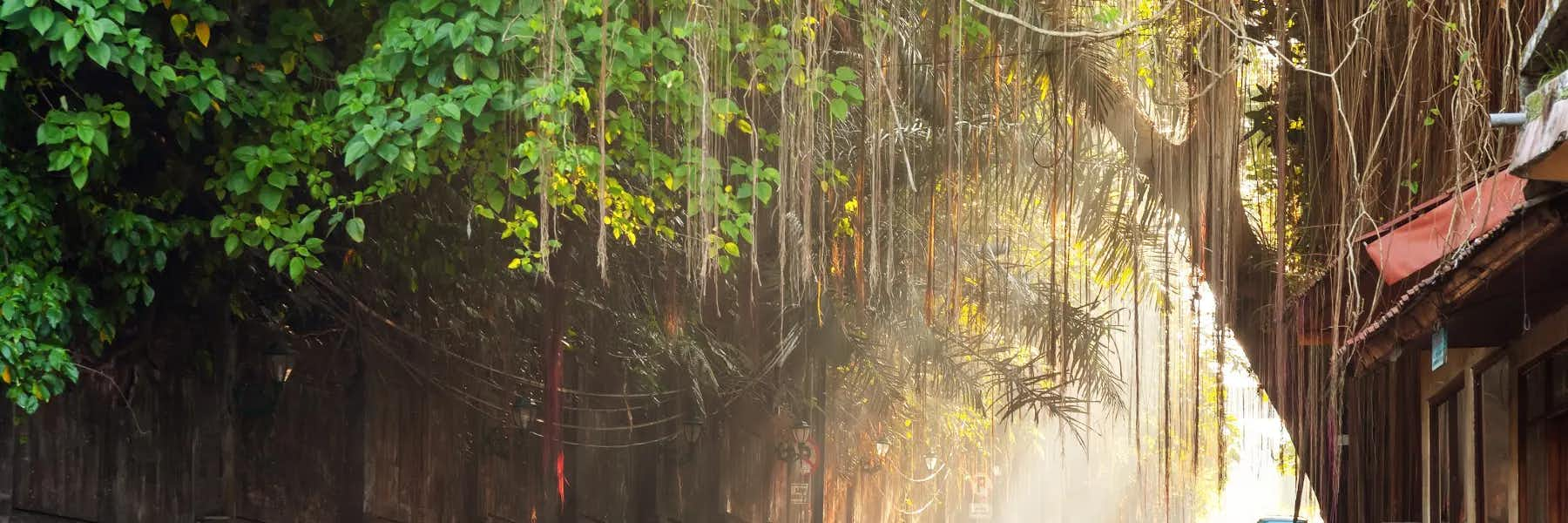Like neighboring Malaysia, Indonesia has become increasingly popular as an expat destination. The island of Bali has long been favored by surfers and backpackers, but the country is beginning to open up to residency for other purposes, including retirement.
Temporary Visas
Citizens of North America can visit Indonesia for a maximum of 30 days without a tourist visa. The cost for an entry permit is $35 per person. Your passport must be valid for at least six months. Visitors to Bali can extend the visa once for an added 30 days.
Long-Term Visas
Social Visa
If you want to stay in Indonesia for longer than 60 days, you can apply for a 180-day Social Visa. To qualify, you will need a sponsor letter from an Indonesian sponsor, proof that you can support yourself during your stay, and a copy of the sponsor’s identity card. This isn’t as difficult as it sounds; many tourism agents will help you collect what you need.
To obtain the 180-day visa, it must be processed at an Indonesian Embassy outside Indonesia. The simplest is to fly to Singapore and use an agent to handle the formalities, most of the time on the same day. You’re initially granted a 60-day Social Visa, which can then be renewed four times every 30 days, thus allowing you a 180-day stay.
If you want to remain in Indonesia for longer. There are three routes:
KITAS
The KITAS is a temporary visa. There are several varieties for work and study, but for most people, the retirement version is applicable. You must be at least 55 years old, have sufficient income, accommodation, and health insurance, and promise not to engage in any business or employment in the country. It’s valid for one year and renewable annually.
KITAP
The KITAP is the permanent version of the KITAS. It's available to anyone who has held a KITAS for four consecutive years. It allows you to live in the country permanently for five years, then exit and enter when needed. You can also open a bank account and enjoy many other benefits. This visa doesn’t allow for employment of any kind in the country, not even volunteering.
As you’ll need an Indonesian sponsor. There are agents who will do everything for you, including providing a sponsor. It’s easy to find an agent—the best process is to ask around for an agent who comes recommended. It is also important to remember that unless you ask for a multiple entry visa, you are restricted to remaining within Indonesia for 12 months. A multi-exit visa allows you to come and go as you please.
Golden Visas
Indonesia does offer a golden visa, but only for business investments. An investment of at least $350,000 gets a visa valid for five years, and an investment of $700,000 or more gets a 10-year golden visa.
Permanent Residency
The KITAP equates to permanent residency.
Citizenship
Indonesia does not offer dual citizenship, and becoming a citizen is difficult and lengthy. You must have lived in the country for at least five consecutive years, demonstrate proficiency in Bahasa Indonesia, have a stable income, a clean criminal record, and provide a statement renouncing your current citizenship.
Requirements and Documentation
The Retirement KITAS requires:
You are 55 years old or older.
You have no plans to work within Indonesia.
You can provide proof of valid medical insurance.
A domicile form, to prove you are living in the country.
You have hired locals—housekeeper, gardener etc.
Show proof of funds to support you while you’re in the country.
A passport with more than 18 months’ validity.
Sponsor letter, or an agent willing to provide one.
There are three steps to collecting your Retirement KITAS.
Together with your agent, prepare all the necessary documentation as listed above. The agency will then review everything you’ve provided and process it at the local immigration office. Allow two weeks for this application and approval.
Once your application is approved, you’ll receive a telex visa, which you must take to an Indonesian embassy abroad. You can do this yourself, but again, using an agent in the country you’re visiting is much simpler. They’ll arrange to meet you once you land, take your passport to the embassy, and process it. Then, once it's completed, they’ll hand over your completed visa, and you can return to Indonesia.
Once you’ve returned to Indonesia, your agent will convert your permit into a Retirement KITAS and make it official. You’ll also have to visit the local immigration office for fingerprints and a photo. In addition to the KITAS, you’ll receive a certificate of registration of temporary residence (SKPPS & SKTT), a police report (STM) and a police card (SKLD).
If you wish to leave Indonesia for any reason, you’ll need to ensure you have a valid Exit and Re-entry Permit (ERP), valid for three months and allowing you to leave the country once, or a Multiple Exit and Re-entry Permit (MERP). These days, this is supplied with your Visa and is valid for two years, allowing you to exit and re-enter as many times as you wish. The permit basically tells the authorities that yes, you need to leave the country, but you want to return. If you don’t have this document, you’ll have no choice but to re-enter on a Tourist or Social Visa and begin the process again.
Processing Time
Getting a KITAS takes two weeks to two months, depending on the type of visa and the nature of the application. Getting a long-term KITAS takes three to six months.
Cost
Using an agent, the cost of the initial Social Visa is currently $180, including the agent’s fee in Singapore, then $80 per month utilizing a visa agent in Bali. This may sound expensive, but when you consider the cost of flights when having to leave every month or every 60 days, it’s a saving.
The initial cost of the retirement visa is under $1,000, and currently, it is $800 to renew.
Contacts
Indonesian Embassy in the United States
2020 Massachusetts Avenue NW, Washington, D.C. 20036, USA
+1 (202) 775-5200
Consult with Me, One-on-One
My Mission: To Make Your Life Simpler, Safer, and Freer … Not More Complicated
Stop overcomplicating, second-guessing, or giving in to “information paralysis” … Let’s sit down together (online), and I’ll help you create a custom blueprint for your international goals… second passports, tax, travel, retirement, estate, business, and more…






